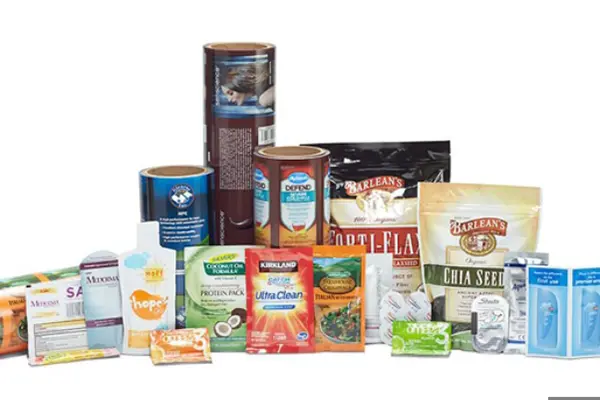Flexible packaging has emerged as one of the most innovative and versatile solutions in the packaging industry. It refers to packages or containers made from easily yielding materials that can change shape when filled or closed. These materials include plastic films, foil, paper, or a combination of them, allowing the package to bend or flex. The rise of flexible packaging is closely tied to its numerous benefits across industries, from food and beverages to pharmaceuticals and consumer goods. In this article, we will explore the importance of flexible packaging and how it revolutionizes modern packaging practices.
1. Versatility and Adaptability
One of the primary reasons why flexible packaging has gained widespread popularity is its versatility. Unlike rigid packaging, flexible packaging can be customized to fit the shape, size, and specific requirements of the product being packaged. This flexibility in design allows manufacturers to create packaging solutions that are tailor-made for each product, providing optimal protection and convenience.
Custom-Fit for Different Products
From liquids and powders to solid goods, flexible packaging can be adapted to suit a wide range of products. For example, stand-up pouches are ideal for liquids like juices or cleaning products, while resealable bags work well for dry foods such as snacks, coffee, or cereals. This ability to create custom shapes and sizes ensures that products are packaged efficiently, minimizing wasted space and material.
User-Friendly Features
Flexible packaging often includes convenient features such as resealable zippers, spouts, tear notches, and easy-to-open seals. These features enhance the consumer experience by making products easier to open, use, and store. For instance, resealable packaging keeps food fresh for longer and reduces waste, while spouts make it easier to pour liquids without spills. This user-friendly aspect makes flexible packaging appealing to both manufacturers and consumers alike.
2. Cost-efficiency and Resource Conservation
Another significant advantage of flexible packaging is its cost-effectiveness. Flexible packaging typically requires less material to manufacture compared to rigid alternatives, resulting in lower production costs. Additionally, its lightweight nature translates to savings in shipping and transportation.
Reduced Material Usage
Flexible packaging uses fewer raw materials than traditional packaging methods, such as glass jars, metal cans, or rigid plastic containers. For example, a single plastic pouch may replace several layers of heavier materials while still providing sufficient protection for the product. This material reduction not only lowers costs but also minimizes the environmental impact of packaging production.
Lower Shipping and Storage Costs
Since flexible packaging is lighter and more compact than rigid packaging, it can be packed more efficiently, reducing shipping and storage costs. This is especially important for industries that deal with large volumes of products, such as food and beverage manufacturers. Lighter packages require less fuel to transport, which translates to lower transportation costs and a reduced carbon footprint. Furthermore, flexible packaging takes up less space in storage facilities, leading to better utilization of warehouse space.
3. Environmental Sustainability
In today’s world, sustainability is a key consideration in all aspects of business, and packaging is no exception. Flexible packaging offers several environmental benefits that contribute to a more eco-friendly and sustainable supply chain.
Reduced Waste and Carbon Footprint
As previously mentioned, flexible packaging uses fewer materials, which results in less waste being produced during the manufacturing process. Moreover, because it is lightweight and can be compressed into smaller volumes, it reduces transportation-related emissions. By opting for flexible packaging, companies can reduce their overall carbon footprint and contribute to more sustainable production and distribution practices.
Recyclability and Eco-Friendly Materials
Many flexible packaging solutions are now designed to be recyclable or biodegradable, further enhancing their environmental appeal. For example, flexible pouches made from bio-based plastics or compostable materials provide an eco-friendly alternative to traditional plastic packaging. As consumer demand for sustainable products grows, companies are increasingly adopting flexible packaging options that align with green packaging initiatives.
In addition to being recyclable, flexible packaging also supports waste reduction by allowing for smaller portions or single-use packaging. This helps minimize food waste by allowing consumers to use only what they need, keeping the rest fresh for longer.
4. Product Protection and Preservation
Flexible packaging is designed to provide excellent protection for the products inside, making it a valuable solution for industries such as food, pharmaceuticals, and personal care products. By offering high-barrier properties, flexible packaging protects products from exposure to air, moisture, light, and contaminants.
Extended Shelf Life
For perishable goods like food and pharmaceuticals, maintaining product freshness and safety is critical. Flexible packaging materials such as laminated films and foil create a barrier that prevents air, moisture, and bacteria from entering the package, helping to extend the shelf life of the product. This is especially beneficial for products that need to remain sterile or fresh over long periods.
Tamper-Evident and Secure
Flexible packaging can also be designed to be tamper-evident, providing an additional layer of security for consumers. Tamper-evident seals, such as tear strips or heat-sealed edges, make it clear if a product has been opened or compromised. This is especially important for sensitive products such as pharmaceuticals, where ensuring product integrity is paramount.
Conclusion
The importance of flexible packaging lies in its ability to meet the demands of modern consumers and manufacturers. With its versatility, cost-effectiveness, sustainability, and product protection capabilities, flexible packaging is revolutionizing the way products are packaged, shipped, and consumed. As industries continue to prioritize eco-friendly and efficient packaging solutions, flexible packaging is poised to play a central role in the future of global supply chains. Whether it’s food, medical supplies, or consumer goods, flexible packaging offers a reliable, innovative solution that meets the evolving needs of today’s marketplace.
Post time: 09-20-2024


